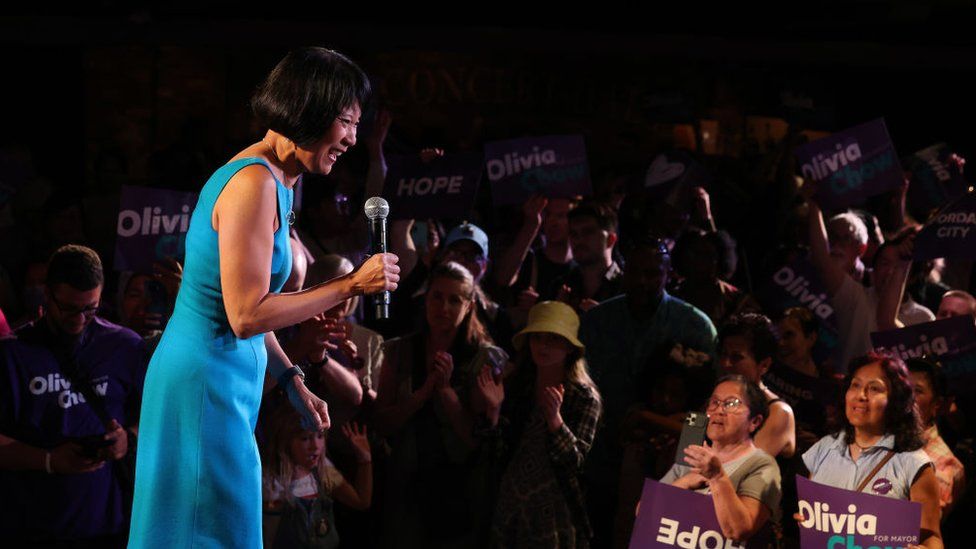In a historically competitive field of 102 candidates, a left-wing progressive standard-bearer has won Toronto's mayoral election.
The favorite was widely regarded to be Olivia Chow, a 66-year-old former city councilwoman and member of parliament.
Affordability and public safety have received a lot of attention in the race.
Toronto voters chose a new mayor for the second time in eight months as a result of John Tory's abrupt resignation as mayor.
Mr. Tory, a 68-year-old moderate conservative, resigned in February just hours after the Toronto Star reported that he had an affair with a staff member who was 31 years old during the Covid-19 pandemic.
Just a few months prior, Mr. Tory had easily won a third term with more than 60% of the vote.
No obvious center-right challenger to Mr. Tory emerged in this, Toronto's first mayoral race without an incumbent since 2014.
With the exception of former deputy mayor Ana Bailo, who received a last-minute endorsement from Mr. Tory, and former police chief Mark Saunders, who received some backing from Ontario Premier Doug Ford, support failed to coalesce around those challengers, giving Ms. Chow a narrow path to victory.
Her victory suggests potential future conflicts with Mr. Ford, the conservative premier who claimed earlier this month that her victory would be "an unmitigated disaster," as it will be the first time in ten years that a progressive will be in charge of the city.
Ms. Chow, who was born in Hong Kong, is a renowned veteran of Canadian progressive politics.
Before being elected to the parliament in 2006, she served as a councilor for downtown Toronto. Jack Layton, the late federal NDP leader who passed away in 2011, was her husband.
Ms. Chow ran for mayor in 2014 but finished third.
She promised to build homes on city-owned land and to increase support for renters as part of her campaign, which was centered on Toronto's housing affordability crisis.
Her platform called for more assistance for the city's homeless population, including the construction of more social housing and the establishment of "respite spaces," which would provide 24-hour access to essential services like meals and showers for Torontonians.
She was criticized, however, for not saying how much she would raise property taxes to fund her promises.







